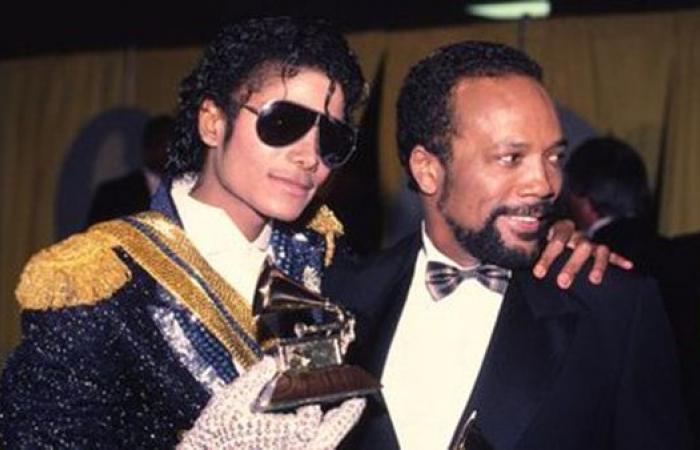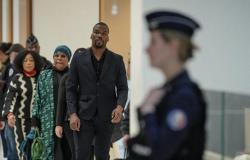(…) When he tried his hand at trumpet in the orchestra of vibraphonist Lionel Hampton, Quincy Jones was not 20 years old. Even if he is not yet a great instrumentalist, his sensitivity acquired through contact with his elder, Clark Terry, allows him to stand out. He will never forget to pay tribute to him over the decades. However, he knows his limits and realizes that interpretation is not his path. He prefers to work on the texture of a composition. He likes to refine, reshape, adapt, knead a score to make it more sparkling and seductive. This rigorous exercise suits him perfectly. He therefore enjoys magnifying the repertoire of his jazz counterparts. The great figures of the time sought him out: Duke Ellington, Count Basie, Gene Krupa, Sarah Vaughan, Dinah Washington, and his friend Ray Charles.
Decisive meeting
It is in France that his epic will accelerate. In 1957, he met Nadia Boulanger. This meeting will be decisive. This immense teacher and classical pianist gives him a better understanding of his art. Quincy Jones perfected his knowledge of writing and became a formidable composer for whom a brilliant future was predicted. He then met producer Eddie Barclay, who entrusted him with the musical direction of his label and encouraged him to collaborate with Michel Legrand, Charles Aznavour, Henri Salvador. These moments of frank camaraderie will remain forever inscribed in the memory of Quincy Jones who enjoyed recounting his youthful Parisian adventures. The spirit of freedom that this talented young African-American felt at the time contrasted sharply with his daily life across the Atlantic. In the heart of the 1960s, the struggle of black people in the United States to obtain equal rights was fierce and violent. Earning the respect of white citizens is a constant struggle. Thus, when Quincy Jones became vice-president of Mercury records, his aura increased and precipitated his rise. (…)
Sales records with Michael Jackson
He created Qwest Productions in 1975, and intends to continue his joyful work despite the setbacks of existence. In 1978, the wheel turned in the right direction again. On the set of Sidney Lumet’s film The Wiz, he sympathizes with a rather gifted 20-year-old kid. What happened next is now immortalized in the history books. The Quincy Jones-Michael Jackson duo will be one of the most breathtaking successes of the 20th century. Off the Wall, Thriller and Bad will shatter all album sales records on the planet and elevate Quincy Jones to the rank of heroic producer. Certainly… But the epic does not end there and should not be so circumscribed. This indelible chapter will remain, we can be convinced, but behind the architect of success, there has always been the seasoned musician whose informal American jazz education and academic discipline, inherited from his years of professionalization in Paris, nourished a very fertile open-mindedness.
It seemed obvious that he suggested to his friend Miles Davis to reread, at the twilight of his life, a part of his lyrical past. Thus, on July 8, 1991, Quincy Jones had the privilege of conducting the Gil Evans Orchestra during a majestic concert in Montreux, Switzerland, during which Miles Davis reinterpreted, for the first time since the 1950s, his works of yesteryear. In addition to the fraternal and nostalgic dimension of this unique performance, this event symbolized, for Miles and Quincy, the aspiration of every African-American citizen to elevate black culture to its true value. A few weeks later, Miles Davis left this world and Quincy Jones mourned him with, despite everything, the pride of having brought about his stage reunion. After this melodiously trying mourning, “Q”, as he was now affectionately called, seemed to want to share more of his experience and put on stage or to music the story of his memories. The dashing sixty-year-old saw the tributes piling up and willingly accepted the image of the wise patriarch that we consult periodically.
Ovation in Paris
In recent years, he continued to support young creators and praised the virtuosos in whom he believed. Jacob Collier, Alfredo Rodriguez and Nikki Yanofsky can today congratulate themselves on having received the maestro’s encouragement and advice. One of the last sumptuous bows took place on June 27, 2019 at the Accor Arena. In Paris, where, 60 years earlier, it had all truly begun, Quincy Jones received a popular ovation from his admirers and the honors of his musician friends who offered him a grandiose hagiographic spectacle punctuated by the acrobatics of inimitable soloists, Richard Bona , Marcus Miller, Selah Sue, Ibrahim Maalouf, and the symphonic ornamentations of the orchestra conducted by Jules Buckley. 20,000 moved spectators, anonymous and celebrities including Manu Dibango or Kyle Eastwood for example, accompanied this deserved coronation by wiggling, among others, to “Soul Bossa Nova”, “Gimme The Night”, “Thriller”, “Let The Good Times Roll”, an avalanche of classics stamped “Q”. That evening, Quincy Jones thanked Paris for giving him the keys to his prodigious epic. No, he was not only the producer inspired by the young Michael Jackson, but a magician capable of lighting up the stars!
Rfi






